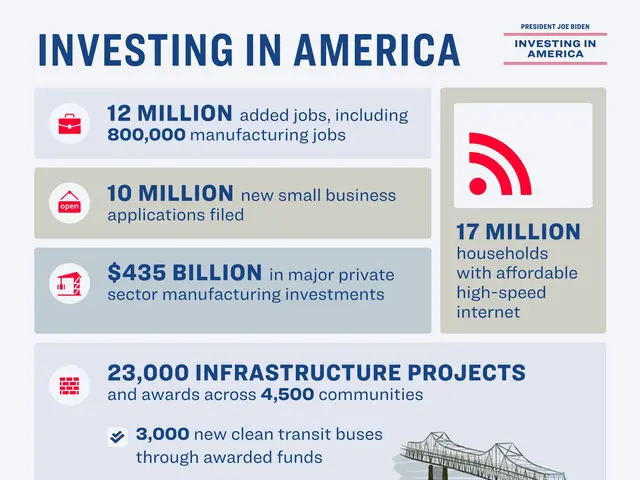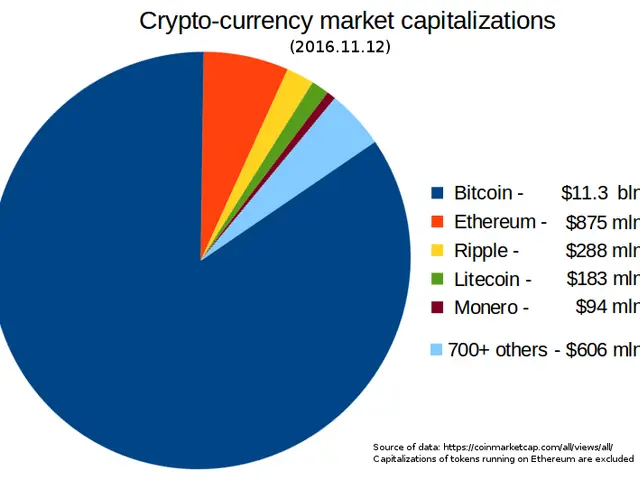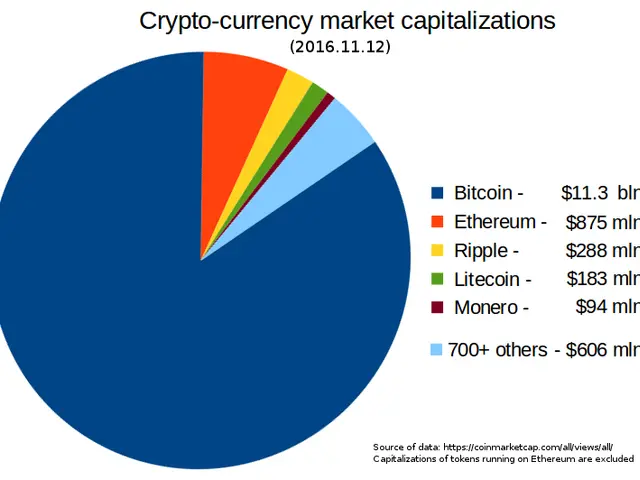Unraveling the Cryptic Kingdom: Celsius Network's Imminent Doom
Federal authorities seek a lengthy incarceration of up to 20 years for Alex Mashinsky, the founder of crypto lending platform Celsius.
Get a glimpse into the chaotic world of cryptocurrency with our touching tale of Celsius Network's fall from grace.
The brains behind this financial fiasco, Alex Mashinsky, is on the verge of hearing his fate, as prosecutors have proposed a dreadful punishment of two decades behind bars.
A cacophony of investors, left in ruin by the doomed crypto lender's downfall, are clamoring for Mashinsky's confinement within the cold walls of a penitentiary, for eternity.
Within a sentencing plea, the U.S. Justice Department accuses Mashinsky of orchestrating a "decade-long charade of deception and self-enrichment," resulting in in losses and crushing the hopes of thousands of trusting investors.
The filing details Mashinsky's manipulation of deposit safety, fabrication of profitability, and the recklessness of using customers' funds for high-stakes, uncollateralized trades and hidden market speculations.
Not one to admit fault, Mashinsky has confessed to only two of the seven fraud charges against him—commodities fraud and conspiring to manipulate CEL tokens.
The prosecution claims that Mashinsky's crimes led to his personal enrichment by over , echoing the Justice Department's insistence that{"italic""}, "Those who steal billions deserve decades, not years."
The memo further underscores Mashinsky's unwillingness to acknowledge the full extent of his transgressions, asserting that leniency would be ill-advised given the likelihood of further misconduct. In comparison, Bernard Madoff received a harsh and Sam Bankman-Fried, a ruthless crypto magnate, was handed a for similar offenses.
Mashinsky has openly argued that his punishment should be more lenient due to his guilty plea. However, the prosecution insists that factors such as the severity of his crimes necessitate a harsher penalty.
Last edited by Stacy Elliott.
Crypto Weekly Digest - Your Go-To Source for Cryptocurrency News
Additional Insights:
- Mashinsky perpetrated "deliberate, calculated" fraud, entailing misrepresentations about deposit security and the CEL token value[1][2][4]. The scope of his deception encompassed putting customers' funds at risk and using deposits to bolster the CEL token[1][5].
- Ominous tales of collapse have led to over , recounting financial ruin and in some chilling cases, suicides[2].
- Mashinsky's sentencing hearing is set for May 8, 2025, before Judge John Koeltl in Manhattan.His lawyers have requested a mere year, while probation officials argue for up to 15 years[2][5]. The Justice Department has warned that a lenient sentence might not deter other criminals in the crypto sphere.
- In the world of cryptocurrency, the fall of Celsius Network, orchestrated by Alex Mashinsky, serves as a somber reminder of the potential pitfalls in investing in Initial Coin Offerings (ICOs) and the crypto market at large.
- The sentencing of Mashinsky is scheduled for May 8, 2025, and prosecutors are requesting a severe punishment of up to 20 years in prison for his role in a decade-long scheme of fraud, causing over $550 million in losses to investors.
- Mashinsky's manipulation of deposit safety, fabrication of profitability, and use of customers' funds for high-risk, uncollateralized trades and hidden market speculations have been highlighted in the Justice Department's filing.
- Alex Mashinsky has admitted to only two of the seven fraud charges against him, including commodities fraud and conspiring to manipulate CEL tokens, but the prosecution insists that the severity of his crimes necessitates a harsher penalty.
- Mashinsky's crimes have been compared to those of notorious figures like Bernard Madoff and Sam Bankman-Fried, who were sentenced to 150 years and 25 years in prison, respectively, for similar offenses in the finance and crypto industries.
- Over 200 victim statements have been submitted, recounting financial disaster and in some tragic cases, suicides, emphasizing the far-reaching impact of Mashinsky's actions on the general public, business, and crime-and-justice sectors.





